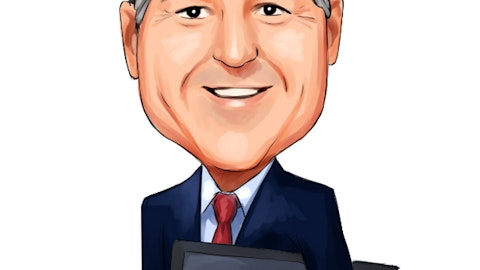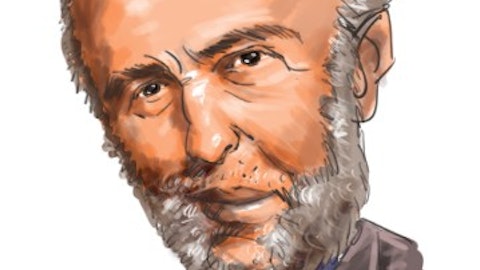PVH Corp (NYSE:PVH) made some big money for funds a few days ago when it announced it would bring together the Calvin Klein underwear, jean and sportswear lines together by purchasing Warnaco Group Inc (NYSE:WRC) for $2.8 billion. Before the deal, PVH sold Klein’s formal and sportswear, while Warnaco sold jeans and underwear. Warnaco will also bring other major brands like Speedo and Chaps to PVH’s already robust brand offering that includes Tommy Hilfiger and Van Heusen. PVH was up over 20% on the news, and Warnaco was up over 35%.
The top two hedge funds invested in PVH were new shareholders in 2Q. MSD Capital bought up 1.3 million shares and Tiger Consumer Management purchased 740,000 shares. For Warnaco, top funds included Chuck Royce with 2.5 million shares, Jana Partners with 1.2 million shares, and Adage Capital Management with 1.1 million shares. Chuck Royce increased his 1Q position by over 70% in 2Q, while Jana Partners’ position was an entirely new one. Assuming all of these funds own the same number of shares now as they did at the end of 2Q, top winners include PVH investor MSD Capital—making as much as $26 million—and Warnaco investor Chuck Royce, who made over $45 million; check out other firms making big money on the Warnaco deal.
Other major apparel competitors for PVH include V.F. Corporation (NYSE:VFC), Ralph Lauren Corp (NYSE:RL) and Perry Ellis International, Inc. (NASDAQ:PERY). VF Corp is trading at the low end of the industry P/E range at 17x, under pressure after continued implementation concerns of its Timberland acquisition. The company has also been hurt by a slow in demand for its higher-end brands due to the generally shoddy macroeconomic environment. Funds with possible concerns over VF Corp’s performance include Lone Pine Capital and Jim Simons, both of whom dumped over 30% of their 1Q shares in 2Q. However, we believe the company is a possible buy given their previous ability to integrate brands, as evidenced by their past success of North Face and Vans.
Ralph Lauren and Perry Ellis are trading in line with each other on a P/E basis, at 21x. However, Ralph Lauren saw positive fund interest in 2Q, while Perry Ellis’s was negative. Ralph Lauren got votes of confidence from Jim Simons and Lone Pine Capital, yet Perry Ellis saw Whitebox Advisors, D.E. Shaw, and Hutchin Hill Capital all dump their shares.
We see Ralph Lauren as being fairly valued, as growth slows from 21% in 2012 to 4.5% in 2013. This is due to the company’s slumping sales in Europe and Asia. The company has initiatives that could help the company grow long-term, yet these will strain margins in the interim. Planned initiatives include breaking into the international e-commerce market, as well as offering childrenswear.
Being a bit less diversified than Ralph Lauren, and very much less diversified than PVH or VF, Perry Ellis has surprised many investors by showing positive growth amid a weak economy, rebounding from a 2011 slide to be up 40% in 2012 thus far. We believe the company’s multiple price point strategy has been a driving factor, as well as its 2.2 beta, yet we would be much more interested in an apparel company with a bit more diversity, say PVH for example.
The recent price jump for PVH has put it at the top end of the industry, now trading at 25x, however the company does have the highest expected five-year EPS growth rate at a 16% CAGR. We still believe the company is an attractive buy given its ability to offer the full Calvin Klein brand across various international markets, including Europe and Asia. Its acquisition is expected to add $0.35 to earnings during the first year, and $1.00 to its bottom line by the third year. As a result, PVH now expects full-year earnings of $6.32 to $6.37, which would mark a growth of 17% from last year’s totals.




